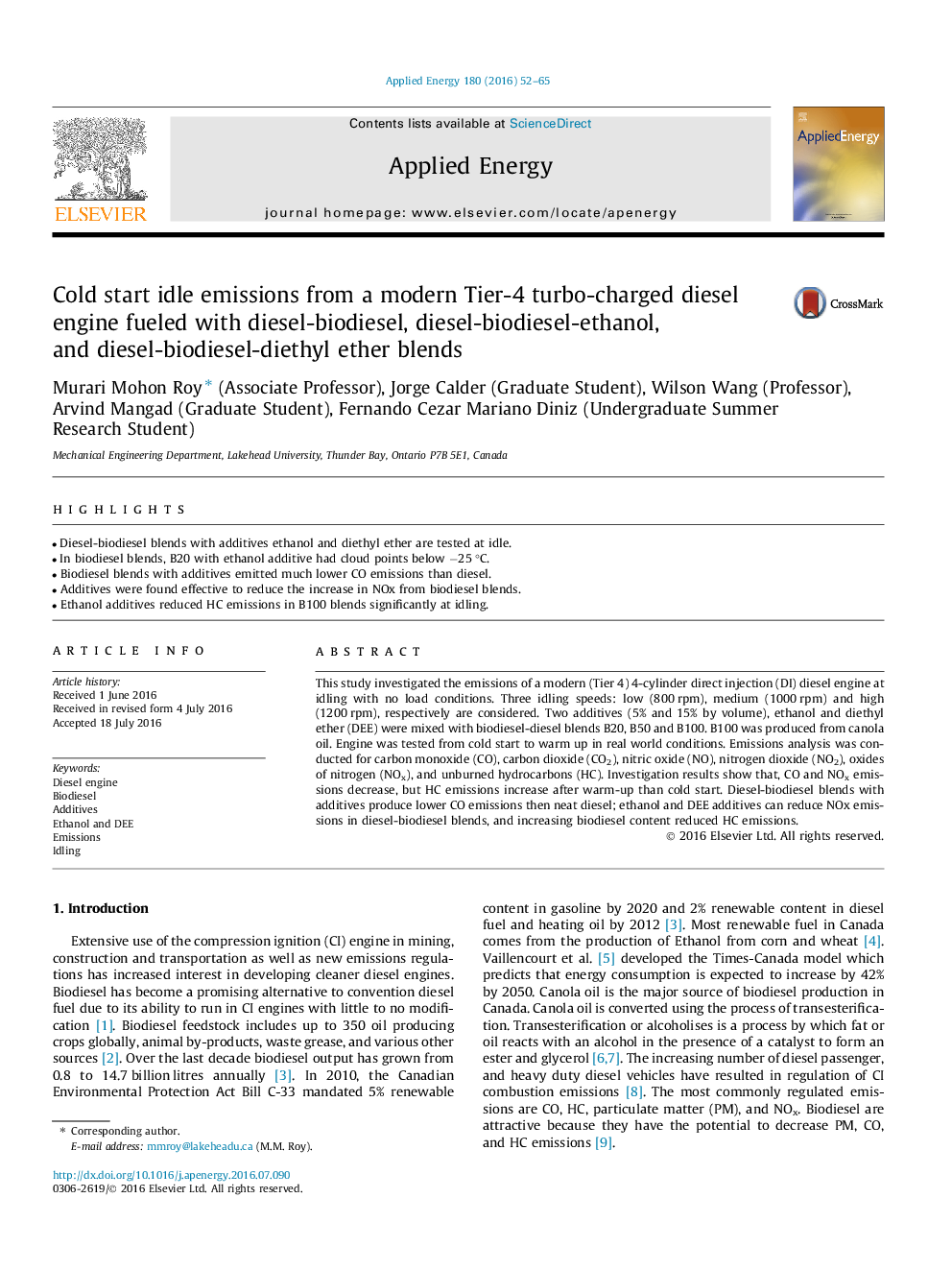| Article ID | Journal | Published Year | Pages | File Type |
|---|---|---|---|---|
| 242438 | Applied Energy | 2016 | 14 Pages |
•Diesel-biodiesel blends with additives ethanol and diethyl ether are tested at idle.•In biodiesel blends, B20 with ethanol additive had cloud points below −25 °C.•Biodiesel blends with additives emitted much lower CO emissions than diesel.•Additives were found effective to reduce the increase in NOx from biodiesel blends.•Ethanol additives reduced HC emissions in B100 blends significantly at idling.
This study investigated the emissions of a modern (Tier 4) 4-cylinder direct injection (DI) diesel engine at idling with no load conditions. Three idling speeds: low (800 rpm), medium (1000 rpm) and high (1200 rpm), respectively are considered. Two additives (5% and 15% by volume), ethanol and diethyl ether (DEE) were mixed with biodiesel-diesel blends B20, B50 and B100. B100 was produced from canola oil. Engine was tested from cold start to warm up in real world conditions. Emissions analysis was conducted for carbon monoxide (CO), carbon dioxide (CO2), nitric oxide (NO), nitrogen dioxide (NO2), oxides of nitrogen (NOx), and unburned hydrocarbons (HC). Investigation results show that, CO and NOx emissions decrease, but HC emissions increase after warm-up than cold start. Diesel-biodiesel blends with additives produce lower CO emissions then neat diesel; ethanol and DEE additives can reduce NOx emissions in diesel-biodiesel blends, and increasing biodiesel content reduced HC emissions.
